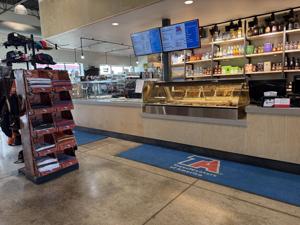(The Center Square) – Consumers are already seeing higher prices due to tariffs from the Trump administration, and what will happen next is uncertain, the president of the Georgia Chamber of Commerce said.
President Donald Trump announced tariffs on almost all U.S. trading partners April 2. He has since said he would pause tariffs for 90 days while the countries negotiate with the U.S. China is the exception, and Trump has raised tariffs by 145% on the country. China has retaliated against by imposing higher tariffs on the U.S.
The possible effects in Georgia are widespread from the Port of Brunswick – one of the country’s busiest for automobile imports – to the state’s farmers still reeling from storm damage in 2018 and 2024.
The changes make it difficult for businesses, said Chris Clark, president and CEO of the Georgia Chamber of Commerce, in a Wednesday call with reporters.
“We’ve already heard from businesses over the weekend that have lost orders just from last week,” Clark said. “We believe that changes must be made, don’t get me wrong, we believe that getting rid of some of the trade barriers from China and other countries will help Georgia farmers, small business manufacturers. But there are good ways to do this, and we can do it in a much more judicious process.”
The cost is being passed on to consumers, he said.
“I think we’re already seeing at the grocery store, particularly from fruits and vegetables that are imported from Mexico and South America,” Clark said. “We’re already seeing in Georgia a note on cash register receipts saying food tax or tariff tax that are going on. So, unfortunately hard-working Georgians are seeing the impact.”
Higher prices could be seen next in consumer products, according to Clark.
“Your big box retailers might be able to absorb some of those. The smaller folks are not going to be able to. They’re going to have to pass those costs on,” Clark said.
The Georgia Chamber issued its third report on the tariffs Wednesday aimed at advising the state’s businesses. The recommendations include looking at other supply chains and planning ahead.
“The last thing, that we’re recommending the Georgia businesses is you need to contact your congressional delegations. Call us, talk to the Georgia Chamber, talk to your local chamber partners, but our members of Congress need to know what the positive impacts are from these tariffs and definitely what the negative impacts are,” Clark said.
Clark said he is hoping that federal agricultural officials will offer some relief to farmers.
“You’ve got some, particularly in the nut industry that will take years, if not generations to recover,” Clark said. “This is adding insult to injury.”






















































